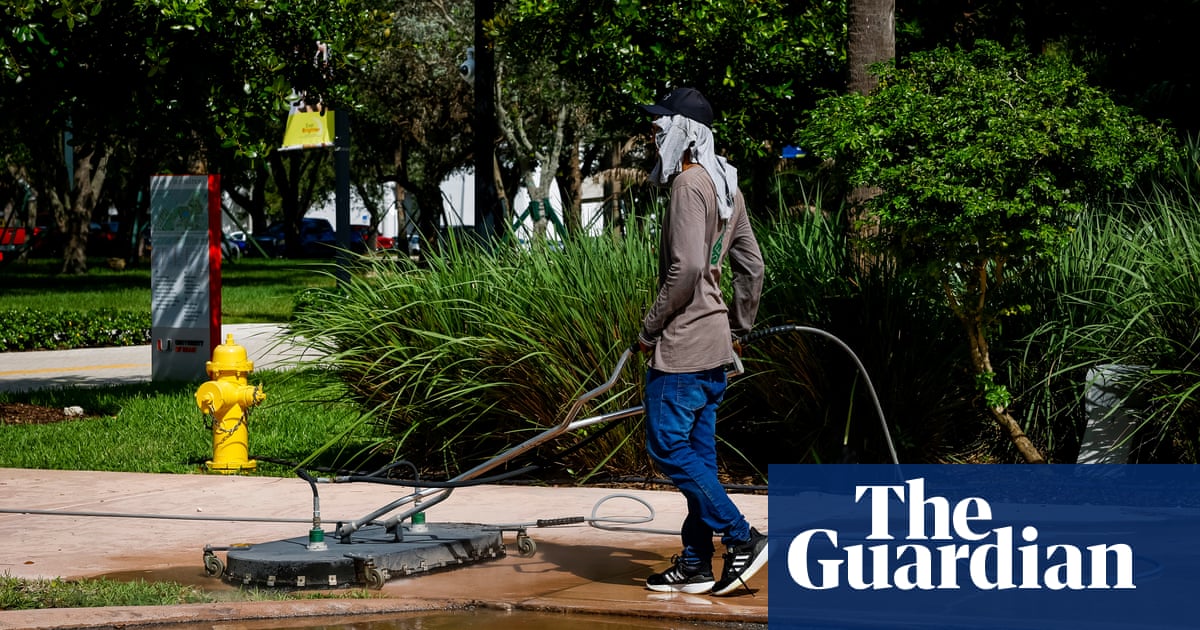- cross-posted to:
- [email protected]
- cross-posted to:
- [email protected]
Effects of heat are expected to worsen after bill prohibiting municipalities from enacting shade and water protection is passed
For Javier Torres and other workers whose jobs are conducted outdoors in south Florida, the heat is unavoidable. A new law recently signed by Ron DeSantis, Florida’s Republican governor, that prohibits any municipalities in the state from passing heat protections for workers ensures that it is likely to stay that way.
Torres has seen a co-worker die from heatstroke and another rushed to the emergency room in his years of working in construction in south Florida. He has also fallen and injured himself due to heat exhaustion.
“I work outdoors and have no choice but to work in the heat. I work often in painting and, in the majority of cases, we’re exposed to direct sun and we don’t have shade. Sometimes I feel dizzy and get headaches,” said Torres.
He said employers rarely provide workers with water, leaving workers to ensure they bring enough water to work or find a hose to drink from.
The effects of extreme heat on workers are only expected to worsen due to the climate crisis. Many parts of Florida experienced record heat last year. Orlando hit 100F (37.7C) in August breaking a record set in 1938. The National Weather Service recently issued its outlook for summer 2024, predicting Florida summer temperatures will be warmer than normal.



Unless those federal protections don’t include heat protection…